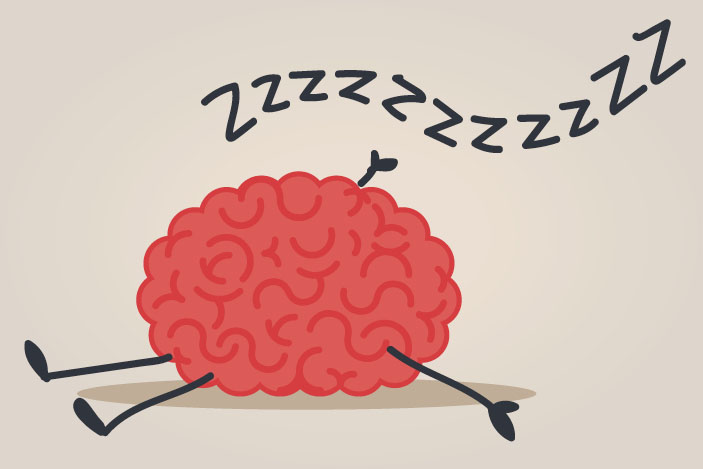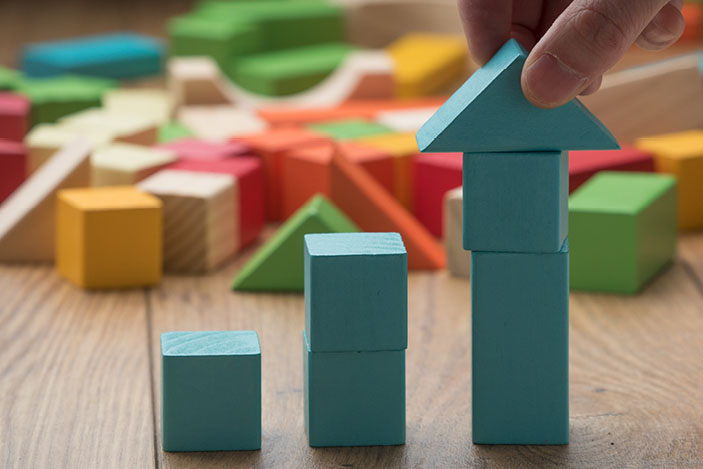STRESS, anxiety, disruptions and low productivity – welcome to today’s workplace.
Singapore’s workers continue to lead the pack when it comes to the number of hours they work according to the International Labour Organization (ILO) and from data on the Ministry Of Manpower site.
Singaporeans have surpassed even the notoriously hardworking Japanese and Taiwanese. What’s more, the average hours worked by Singaporeans have not declined for decades but may be on a slight decline in the past few years.
Singaporeans have overtaken the traditional global workhorses, the South Koreans, in notching up the highest number of hours worked per year worldwide — close to 2,400 work hours in 2014. Singapore’s workers regularly stay late at work to try and win favour with their bosses and admit that keeping up the appearance of being busy is important. It is also the case that in Singapore there is not the same focus on work-life balance.
According to the International Labour Organisation (ILO), the Singaporeans work some 46 hours a week on average, which is over nine hours a day. Second place is between South Korea and Hong Kong with around 2,260 hours per year.
For years South Korea had amassed the most hours per year but they have been reducing hours worked whereas Singaporeans have stayed constant and now lead the world.
Importantly, all the other surveyed countries around the world work less than 2,000 hours per year.
In Australia, where I work as an executive coach and organisational development specialist, the situation is no better with one in three adults suffering from moderate to severe stress, and stress related workers’ compensation claims having increased by an astounding 400% in the last 10 years.
While stress-related illnesses are costing billions in Australia, in the USA stress-related mental disorders are the fastest-growing work-related disease.
The ILO estimates that one in five workers around the world — or over 600 million persons — are working “excessively” long hours, often merely to make ends meet.
The World Health Organisation states that by 2020, depression will be the second biggest health problem worldwide behind heart disease.

Globally, attempts to reduce hours, according to the ILO, have been unsuccessful for various reasons including the widespread use of overtime by employers in an effort to increase output under conditions of low productivity. What’s more, the expanding service sector and informal employment, two of the hallmarks of today’s global economy, are also major sources of longer working hours, especially in industries such as retail trade, hotels, restaurants, transport, storage and communications, all of which commonly involve shift-work and “unsocial” hours.
In Japan they call it “karoshi”. As yet there is no word in English for working yourself to death, but as people work longer hours and suffer more stress, there may soon have to be one. Even the French are experiencing a rash of work related suicides and pointing to workplace stress as the cause.
All this points to a crisis in our work places. Whether it’s the anxiety of an emotionally laden situation, like a board presentation or dealing with increasing work hours and unrelenting deadlines, people are feeling extreme pressure at work and are looking for ways to better manage it.
Stress Helps Us Defeat The Predator
Stress is the emotional and physical strain caused by our response to pressure in our world. Experts believe that stress plays a role in many psychological and physiological ailments such as depression, anxiety, high blood pressure, heart disease, weight gain, alcoholism, reduced concentration, fatigue, irritability, narrowed focus and ulcers. Stress activates our sympathetic nervous system, causing blood pressure, heart rate and breathing to increase. Muscles receive more blood, our attention narrows and feelings of anger and fear increase.
This is the fight or flight response and it is everywhere in our workplaces causing a significant amount of ill health, lost productivity and even death.
Of course, stress is not always negative and for most of us it is present every day. In fact, stress can be positive and helpful in endeavours like public speaking and meeting deadlines. It can motivate us, providing an extra surge of energy to explore new horizons and face challenges.

Stress evolved as a response to the physical threats humans once faced, like predators. “It readied the body for confrontation,” says Professor Charles Mackay of Sydney’s Garvan Institute of Medical Research. As Mackay explains, the adrenal glands produce adrenalin and cortisol, hormones that prepare our muscles for action by increasing heart rate, blood pressure and breathing. Once the acute threat passes however, this heightened state of arousal subsides. But if the threat persists, the stress hormones remain elevated in our bodies. Likewise anxiety is a natural reaction to major life transitions or traumas.
The problem is however that more and more people are living in a chronic state of anxiety. This happens when we feel that the demands being made of us are greater than the resources we have to deal with them. In other words, we do not feel in control.
This lack of control eventually catches up with you. Exhaustion, lack of sleep and poor eating habits all lead to a loss of physical and mental well-being. Stress also alters how the brain functions and reduces our ability to focus on the big picture. Creativity, innovation and productivity vanish because people feel flooded by fear. This triggers the powerful primary negative emotions of anger, anxiety and depression so that our attention becomes riveted on our problems and absorbs all our energy.

You might also want to read:
Good Leaders Must KISS And Tell
texttext
What Can Be Done?
It is our ability to deal with stress that determines its effect on our work, our home lives and our physical, emotional and mental well-being. Given that most governments spend more than 95% of healthcare budgets on the treatment of ill health, we need to take responsibility for our own preventative health and well-being. Luckily, there is much that we can do and over the years I have worked with many people who have implemented practical strategies to become creative, innovative and successful and dramatically improve their lives.
1. Get physical
Exercise reduces your blood pressure, feelings of depression, stress, tiredness and anxiety. It also promotes your psychological well-being, enhances your energy and helps you sleep better. Many of us have experienced the sense of well-being from exercising and from the release of endorphins. When you exercise, you are building up your reserves of hormones that help you to deal better with stress in the future. The fact that you are also doing something good for yourself gives you a sense of mastery and control and gives you a mental break from the things that are causing you stress.

Dr Kenneth Cooper, the originator of the concept of aerobics, found that regular, moderate exercise has profoundly beneficial effects like strengthening your cardiovascular system and improving blood and oxygen flow to your body and brain. In some cases, becoming aerobically fit can double your capacity to process oxygen. In fact, older people who exercise build up their brain tissue and minimise age-related brain tissue losses. All this is important because your brain is less than 3% of your body’s weight yet uses 30% of your body’s oxygen. So join a gym, take up cycling, go for a swim or just walk as much as possible.
2. Get 40 winks and some more
Sleep is important to regenerate and refresh our learning ability, our memory and our emotions. It helps to repair our nervous and immune systems and enhance our physical capacity. A 2002 study from the University of California found that brain activity changes after sleep deprivation. It found that the frontal lobe, which is involved in memory, co-ordination, planning, impulse control and problem solving, does not function well from lack of sleep. To help you sleep better, establish a regular time to go to bed, don’t exercise just before bed, keep your bedroom for sleep and not for work, ensure that your bedroom is cool, well ventilated, quiet and dark, avoid caffeine and other stimulants, and don’t eat after 9pm. Remember sleep impacts your success at work so see your doctor if you are having trouble sleeping.
3. Detox your mind
We should strive to detox our minds to help combat stress and anxious feelings. Tips for doing this include limiting your TV viewing, leaving your mobile at home when you are out with friends, only checking your e-mail three times a day, getting out of the city to be free of billboards, traffic jams and noise pollution and turning off all appliances to listen to the silence. Unplugging your computer and giving your eyes a rest will also broaden your horizons and open your mind.
4. Book in for a massage
One of the best stress busters is to have regular massages. It is amazing that we regularly service our cars but not our bodies. Massage releases endorphins which are the body’s natural painkillers and other beneficial hormones like oxytocin — feel-good hormones that help you relax.
5. Get a pet and beware of isolation
Research shows that just patting a pet decreases your blood pressure and slows down your respiration (even if cleaning up after it or dealing with damaged furniture sends it in the other direction). This will also help in terms of social interaction and helping you to feel less isolated. You could also join a choir, learn to dance or enrol in a course. Remember isolated individuals without an anchor for their emotions do worse when stressed.

6. Try something new
Chris Barez-Brown who invented the concept called “Change your State” guarantees that if you do two new things each day, for five days, you will change your headspace and ultimately your life. He says this enhances your creativity and leaves you “feeling more energised than a week’s holiday”. What will you try — walking a different way home, buying and reading different books, visiting a different part of your neighbourhood, looking at strange art or perhaps eating unfamiliar food?
7. Eat a healthy diet
It seems obvious but healthy eating is essential for combating stress and enhancing your well-being and performance at work. How many people drink at least two litres of water each day, eat fresh foods, especially vegetables, eliminate takeaway meals or have reduced their coffee, alcohol and sugar intake?
Having your iron levels checked is also important as iron is essential for oxygen transport to the brain and low levels can cause panic attacks, fatigue, breathlessness, mental confusion, forgetfulness, irritability and poor learning. Magnesium and calcium are also vital for restoring and maintaining nerve health and for the production and function of serotonin, while the B group of vitamins are the most important for stressed executives. Eat whole grains especially oats and nuts and take vitamin C and potassium which are good stress busters.
In most cases, unclear thinking is a reflection of an unhealthy diet or a stress overload that prevents you from focusing. To help you think more clearly and enhance your memory try ginkgo tea which plays an important role in protecting the brain against damage caused by a lack of blood supply. Also beans, apples, barley and oats are a good source of soluble fibre called beta-glucan which lowers blood pressure as well as cholesterol, while garlic, onion and celery also help lower blood pressure as do the omega-3 fatty acids found in cold water fish like salmon, mackerel, herring, sardines and tuna.
8. Learn to breathe
If you are like most people, you don’t breathe effectively. Stress floods our systems with hormones like epinephrine and norepinephrine, which create shallow thoracic breathing that’s more suitable for the flight-or-fight response. Lengthening your breathing lets you oxygenate your blood more effectively and release more carbon dioxide and dead air from your lungs’ lower lobes.

Many of my clients are prone to irregular breathing, particularly over-breathing too quickly or too deeply. In this case we practise deep breathing as a form of arousal reduction. The most common method taught is diaphragmatic breathing and it is a skill we should all learn. Scheduling time each day for effective breathing is very effective. Simply stopping during the day and taking some deep breaths creates space for expansive thoughts to be cultivated.
9. Establish rituals
This helps to renew and expand your energy. Some rituals I have initiated with people in coaching sessions include setting boundaries around work hours, instituting helpful regimes for the commute to and from work like meditation, undertaking weekend activities that “feed the soul”, especially activities that you currently regret not doing — going on scheduled dates with your spouse, joining a club that meets at least once a week, setting targets to practise deep breathing each day and asking yourself the following questions, “what do I like about myself and when do I feel most authentic”. Culling your information by eliminating outdated or irrelevant e-mails can also enhance your energy while expressing appreciation of others is another powerful ritual that you can try.
Scheduling breaks are also crucial and research shows that when you study or work for an hour and then take a complete break for 10 minutes, your recall of the material is higher at the end of the 10-minute break than it was at the end of the hour. This phenomenon is known as the ‘Reminiscence Effect’. During this 10-minute break try laughing, stretching or doing some deep breathing.
10. Try monotasking
Energy can be quickly depleted by trying to multitask and neuroscientists now conclude that while we may be able to do one or two simple tasks simultaneously, we are not wired to multitask. In fact, multitasking results in deteriorated performance because the executive part of the brain, the neocortex, becomes exhausted from having to pull forward vast amounts of new information each time you commence a different task. Doing one task at a time is much better for performance and stress reduction with some experts believing that interruptions can increase the time to finish the primary task by 25%. This being the case, we should create rituals to reduce distractions, like dedicating a space for complex thinking and sticking to allocated times to check e-mails or respond to messages.
11. Define your vision
There is a strong business case for helping workers to feel good. A Kansas State University study found that staff with high well-being make better decisions, show superior interpersonal skills and are less inclined to quit. Harvard Business School also found that workers in a good mood are more likely to have creative ideas due to a positive, cognitive process which sets in and sparks flexible, fluent and original thinking. Research also suggests that people are happiest when working towards a goal. So define your vision and communicate it to your staff.
12. Give your brain a rest
David Rock, a thought leader and founder and CEO of Results Coaching Systems (RCS) has coined the term neuroleadership for the nexus between science of the brain and business management. His first message for those of us banging our over-worked, underperforming brain on the desk is to give ourselves a break. The reason for this is that the brain’s power is surprisingly limited when it comes to complex cognitive tasks. Rock says we aren’t built to process complex new information all day long and our capacity to do very difficult thinking is limited; perhaps to just a few minutes a day. Doing simple mundane tasks is one way we can give our brains a rest. Rock also asserts that the brain is sensitive to threat and that workplace stress easily triggers the brain’s flight or fight response, limiting our ability to process complex information.

13. Make your workplace beautiful
Do not underestimate the need to create a nourishing environment at work. A study with baby rats showed that when they were placed in a sensory deprived environment, they suffered stunted brain development while also becoming aggressive and violent. Sensory rich rodents on the other hand developed larger, better-connected brains, learnt complex mazes quickly and played happily together.
Leonardo da Vinci also emphasised the importance of an aesthetically uplifting working environment. He understood that the sensory impressions from our daily environments act as food for our brains. Ideas for improving your workplace include hanging your favourite paintings, bringing fresh flowers and replacing fluorescent lights with full spectrum bulbs. Not surprisingly, results of college students in the USA improved by 12% when natural light was introduced into classrooms.
14. Be positive and find meaning
Since World War II, most psychology has focused on a pathology or remedial model that has explored what’s wrong with people as opposed to what’s right. Recently, however, positive psychology has emerged and is exploring ways to help people flourish rather than simply function. This is great news for all of us in our efforts to build our strengths, cultivate skills to cope with adversity and get the most out of our lives.
Positive psychology also asserts that the experience of elation and pleasant emotions does not lead to true happiness. Instead real satisfaction is to be found from leading a good and meaningful life. This is important because despite significant improvements in our levels of affluence and material welfare, our level of happiness has actually declined. In fact, Western happiness has declined precisely in tandem with the rise of affluence and economists consistently find that after people climb out of poverty, more money does not bring greater happiness. As Aristotle noted, true and lasting happiness lies in assisted personal development rather than efforts to prolong cheerfulness.

The building blocks of positive psychology that we should endeavour to adopt are optimism, gratitude, hope, forgiveness, close relationships, meaning and purpose, physical activity, sound sleep, a good diet, engaging leisure, mindfulness and spiritual practice. This is not about morality but research that shows that certain ways of living lead to better satisfaction. Positive psychology experts also recommend setting goals to serve others, undertaking gratitude visits to thank people and developing compassion by thinking of someone who is suffering. Another technique that has positive impacts on people’s lives is the ‘three blessings exercise’ where you spend time each night recording three things that went well during that day.
Lastly, we should spend time each day working or playing in an area that draws on our signature strengths. This means doing something that you are good at as this plays an important role in building your confidence and bringing you happiness. People who practise such interventions cope better in difficult situations and are more resilient in the face of stress and anxiety.
15. Build your emotional intelligence
Renowned psychologist and emotional intelligence expert, Susan David, asserts that people with higher levels of emotional intelligence (EI) typically suffer from less stress and report fewer symptoms of psychological ill health such as anxiety and depression. Research also finds that employees who have higher levels of EI are more satisfied with their job and more committed to their organisation.
Additional reasons for building you EI are that it contributes to leadership success and generating trust. Other research finds that emotionally intelligent individuals are given more merit-based pay increases, have higher company rank, are more sociable and have fewer negative personal interactions.
To build your repertoire of EI skills, ask colleagues for feedback on your behaviour and check to see if it is congruent with your feelings. Also provide positive and constructive feedback to others, recognise good ideas, collaborate openly with peers, show respect, consult genuinely, be proactive in managing conflict and keep a diary to record your reaction to work events and people’s behaviour. Most importantly, have your EI assessed and get some coaching to learn specific EI behaviours.
16. Find calm
To significantly enhance your workplace performance, try meditation, an experiential technique which involves focusing the mind in a way that helps you relax, contemplate, derive insight, gain awareness and enhance your mental, physical and emotional well-being. Professor Rob Moodie from the Nossal Institute for Global Health says that while there are hundreds of types of meditation, they all fall into two main categories; one is concentrative meditation where the centre of activity is on a single image, mantra, sound or your own breathing, and the other is mindfulness meditation in which you are aware of all the physical sensations and feelings that arise and the many thoughts that go through your mind.
The good news is that the mind, just like a muscle of the body, can be trained. In fact, according to Matthieu Ricard, widely regarded as the happiest man in the world, developing happiness is a skill that can be developed, leading meditators to score higher during pleasure mapping of the brain. This gives rise to the idea of raising your happiness baseline and as we know people experiencing positive moods generate more ideas, think strategically and see the bigger picture.
A key principle that connects many different meditation practices is that the mind has a determining effect on the quality of our lives. French physicist, inventor and writer, Blaise Pascal said, “all our problems stem from our inability to sit in a room quietly alone”. This can be a real problem because sitting with something that is uncomfortable is what makes us human. Meditation helps us do this.

Research on the effects of meditation has shown that prolonged practise can reduce fear and anxiety, lessen depression and anger, improve sleep patterns and memory, and enhance your concentration and mental clarity, which results in more energy and output. The physiological benefits are also well documented and include decreased oxygen consumption, reduced metabolic rate and blood pressure, a reduction in heart rate and cholesterol, reduction in epileptic seizure frequency, an increase in cerebral blood flow, improved response times and reflexes, and an increase in melatonin which enhances immune function and reduces jetlag.
Meditation is also a great way to steady yourself when you are in situations that normally make you anxious or panic, like before a difficult discussion or before an important presentation. Likewise, many of my executive clients are interested in meditation because they struggle to deal with extraneous thoughts and find it difficult to focus adequately and direct their attention. In such situations, mindfulness is useful for the management of excessive mental activity, anxiety and stress.
texttext
Creativity, Innovation And Success Await
While the strategies for success are simple, they are by no means easy to do. Get yourself some help and map out a plan. You could start many of the initiatives today. So why not try walking, having a big glass of water, booking a massage, taking some deep breaths, finding a new place for lunch, defining your vision, buying some flowers for your workplace and engaging in activities that are meaningful to you.
Try it for five days; the results will amaze you.
This article was originally published in STORM in 2011. It has been updated.
Main Image: leolintang / Shutterstock.com






















